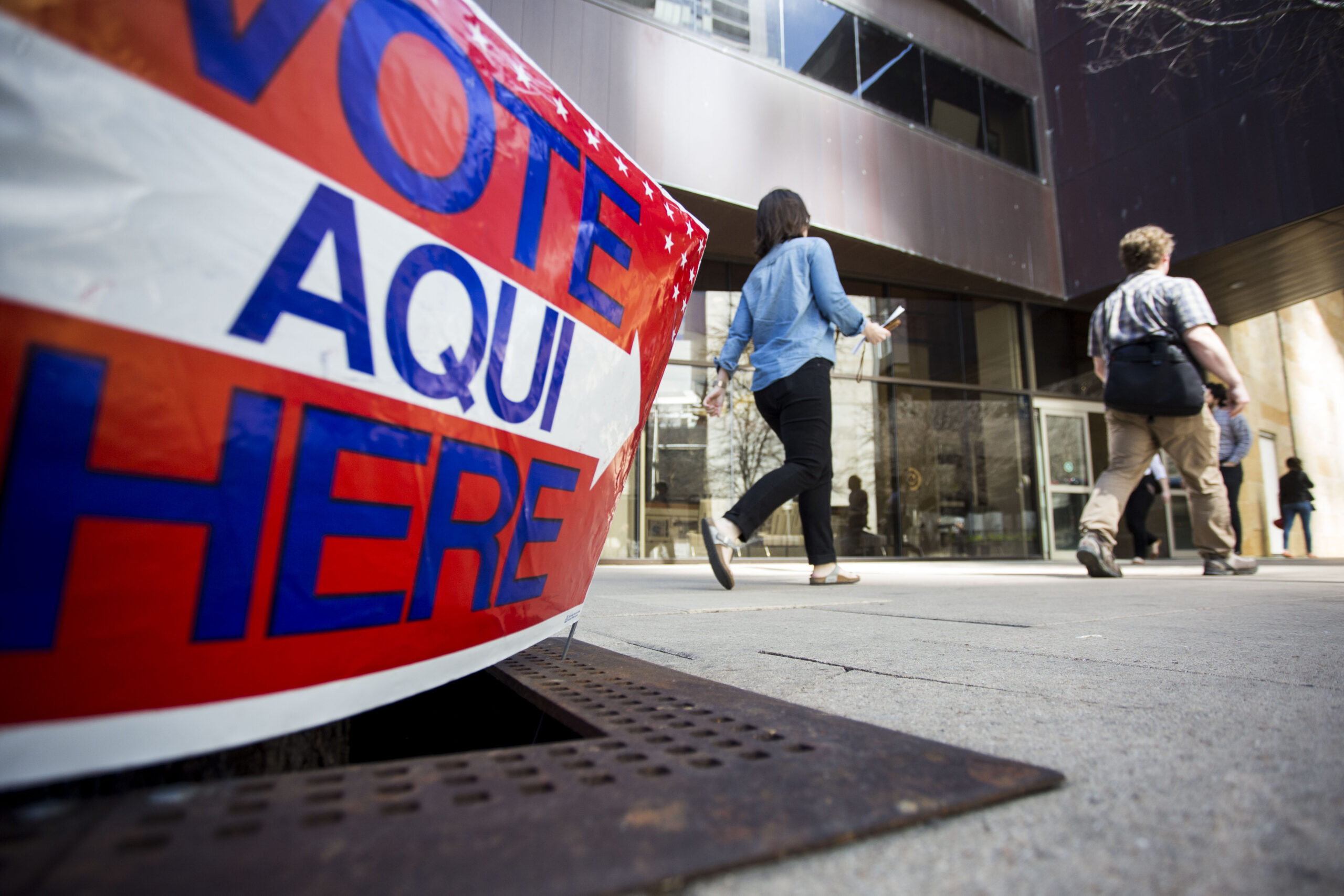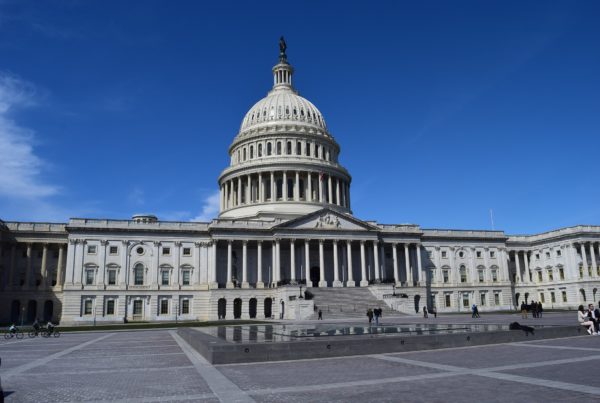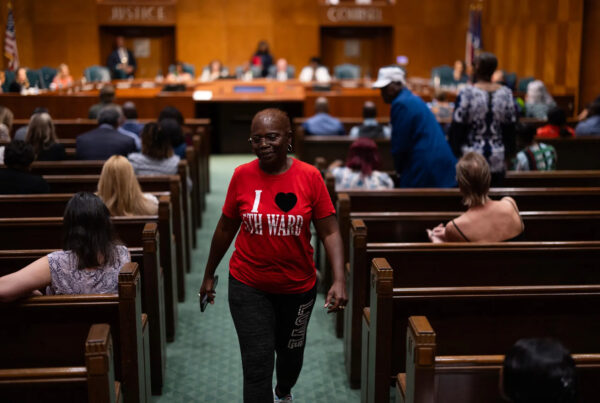Next month, Texas voters will participate in Super Tuesday, along with residents of 15 other states. Texans will choose the presidential candidates they want to move on to November’s general election, and they’ll also be picking their party’s nominees for seats in Congress, the U.S. Senate and state Legislature.
A new report from the Hobby School of Public Affairs at the University of Houston focuses on Republican voters. What issues do they rate as most important, and how do endorsements from party leaders actually shape their thinking?
Joining the Standard to break down the survey’s findings were Renée Cross, senior executive director and researcher at the Hobby School, and Mark Jones, political science fellow at the Baker Institute at Rice University. Listen to the interview above or read the transcript below.
This transcript has been edited lightly for clarity:
Texas Standard: Renée, I want to turn to you first. Give us some background on this survey. What methods did you use, who’d you talk to and what factors were you looking at?
Renée Cross: Well, this survey was a subset of a larger statewide survey of Texas registered voters. This survey concentrated on Republican primary voters. We talked with 508. They completed an online survey last month, and we focused on the most prevalent issues during the last legislative session, as well as endorsements of various incumbents.
Did you see patterns emerging when it came to policy issues?
Renée Cross: Definitely. Immigration and border policy is at the forefront of these Republican voters. For example, 87% of the primary voters strongly support our policy of spending $3 billion in Texas annually on border security.
Mark, I want to bring you in here. What else did you see? Does that line up for you?
Mark Jones: I think Renée covered the high points. What we find is that Republican primary voters universally support the governor’s immigration policy, both spending $3 billion on the border, but also empowering Texas law enforcement officers to arrest undocumented immigrants. There’s strong consensus there.
On school choice, we saw a little more of a mixed position where you have about two thirds of Republican primary voters favoring school choice, and one third that do not.
One of the interesting findings we had is that two thirds of Republican primary voters do favor legislation that will require Texans to be at least 21 to purchase an AR-15 style assault rifle, which is a little in conflict with broader Republican policy at the elite level.
Finally, we found some pretty strong findings related to the votes that Republican incumbents had taken related to school choice, and to the Paxton impeachment and how that would affect people’s likelihood of voting for them in the Republican primary. We found 60% of Republican primary voters say, all things being equal, they would be less likely to vote for a Republican incumbent who voted against school choice. That’s a finding we find in urban and suburban areas, but also rural areas. There’s no difference.
Then a little lower down, 46% of Republican primary voters say they would be less likely to vote for an incumbent who voted to impeach Attorney General Ken Paxton, compared to 23% say they’d be more likely to vote for that incumbent if they voted to impeach the attorney general.
On the issue of abortion, there have been concerns among moderates in the Republican Party that it is costing the party votes among suburban women and college-educated women and men more broadly. Is any of that reflected in the findings here?
Mark Jones: What we did find is that not all Republicans are on board with the current ban on abortion, which is essentially a ban on abortion unless the mother’s life is at risk. While 64% support that, one third oppose it. We also found roughly 1 in 4 Republican primary voters would like to go back to the pre-Dobbs policy and Roe v. Wade, meaning abortion is allowed for any reason through 23 or 24 weeks of pregnancy.
Now, just because they hold those policies doesn’t mean they’re necessarily going to vote Democratic. But it does suggest that, unlike the case in immigration where every Republican is pretty much on the same page, there’s roughly one quarter of the Republican to one third of the Republican primary voters who aren’t on board with the standard Texas Republican policy related to abortion.
Renée, I want to ask about endorsements, because this survey covered a range of endorsements from some key Republican figures, Donald Trump and Greg Abbott among them. Were there any patterns in how these endorsements might have influenced a voter’s preferences?
Renée Cross: There’s no doubt that former President Trump’s endorsement sways more voters. His endorsement is important to 70% of Republican primary voters. However, once you drop down from him, you start seeing the power of endorsements diminishing. For example, Gov. Greg Abbott’s endorsement will sway 64%. Obviously, that’s still a very high percentage.
But then you start looking at other officials, such as Lt. Gov. Dan Patrick. His endorsement may sway 40 to 42% of voters. That’s in an election where you have very low turnout, which we certainly expect in a primary election. Those endorsements could matter. But the folks that they are most likely to follow the lead on are Trump, Gov. Abbott and Sen. Cruz.
I have to ask about Attorney General Ken Paxton, because his impeachment trial was obviously a prominent fixture of Texas politics in 2023. Is that reflected in the findings here? Did you ask about Paxton, for example?
Mark Jones: We did ask about what the impact of the voting to impeach Attorney General Ken Paxton was, and 46% of Republican primary voters say they would be less likely to vote for an incumbent who voted to impeach the attorney general, compared to 23% who said they’d be more likely to vote for you if you voted to impeach the attorney general.
As Renée mentioned also, Paxton’s endorsement isn’t nearly as valuable as Greg Abbott’s. Only 40% of Republican primary voters say they would be more likely to vote for a candidate endorsed by Ken Paxton.
When we’re looking across almost 50 competitive Republican primaries across the state, those people who are supported by Abbott are, all things being equal, in better shape than those who are being supported by Paxton, who carries less weight and less sway with Republican primary voters.
What would you consider to be the single biggest takeaway from this survey?
Renée Cross: For me, it’s the finding that school vouchers support doesn’t really seem to be consistent with different regions. You know, we often think of urban Democrats and rural Republicans banding together on this particular issue. But we really didn’t see that this time around.
Mark Jones: I think it’s that the negative impact that voting against school choice is going to have or potentially have on Republican incumbents, and the weaker negative impact of voting to impeach Attorney General Ken Paxton.












